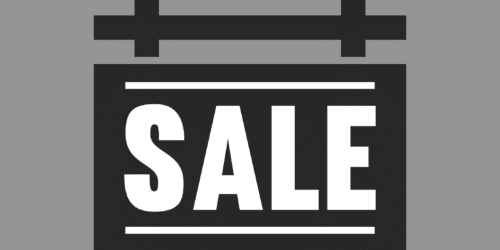On January 12, 2021, in response to an alarming rise in active COVID-19 cases across the province and to prevent the further depletion of hospital resources and overwhelming of our intensive care units, the Ontario Premier declared a second provincial emergency, which will continue for at least 28 days. Additionally, the government issued a stay-at-home order, effective Thursday, January 14, 2021 at 12:01am. During the state of emergency and stay-at-home order, businesses are subject to various updated rules pertaining to working from home, following public health measures, operating at reduced hours and with capacity limits and changes to services offered.
Working from home
All persons who perform work for a business or organization that is open must conduct their work remotely, with limited exceptions, for example, where the nature of their work requires them to be on-site at the workplace.
Public health measures
Every person in a place of business or facility that is open to the public must maintain a physical distance of at least two metres from every other person, except from their caregiver or other members of the person’s household and must wear a mask or face covering that covers their mouth, nose and chin. Further, businesses and organizations must continue to comply with the instructions issued by the Chief of Medical Officer of Health on screening each worker and essential visitor prior to permitting them to enter the workplace.
Indoor and outdoor recreational amenities that are required to be closed to the public are off limits to everyone. A list of outdoor recreational amenities that are permitted to open can be found here.
Weddings, funerals and other religious services are subject to all public health measures and are limited in capacity to 10 people indoors or outdoors.
What is open and closed and under what restrictions?
Retail stores
During the emergency order, retail stores, save and except for supermarkets, grocery stores, convenience stores, indoor farmer’s markets, other stores that primarily sell food, discount and big box retail stores that sell groceries, pharmacies, gas stations and restaurants offering take-out and delivery, must limit their opening hours to between 7:00am-8:00pm and may offer curbside pickup and delivery only.
In-store shopping is permitted at specific types of stores at reduced capacity limits and operating hours as follows:
- supermarkets, grocery stores, convenience stores, indoor farmer’s markets, other stores that primarily sell food (50% capacity);
- pharmacies (50% capacity);
- discount and big-box retail stores that sell groceries (25% capacity); and
- stores that sell beer, wine and spirits (25% capacity and opening hours between 9:00am-8:00pm).
Safety supply stores; businesses that sell, rent or repair assistive, mobility or medical devices, aids or related supplies; and optical stores that sell prescription eyewear are permitted to open between 7:00am-8:00pm and to offer in-store shopping by appointment only.
Shopping malls are permitted to open strictly for access to grocery stores, pharmacies, health care services, court services and government services and for pick-up from designated areas outside or inside by appointment only. Food courts may open for take-away or for pick-up by appointment only. Opening hours are between 7:00am-8:00pm, except to provide access to grocery stores, supermarkets, pharmacies and health care providers without outside entrances.
Cannabis stores operating with a retail store authorization under the Cannabis Licence Act, 2018 may operate between 7:00am-8:00pm by curbside pick-up or delivery only. Patrons must order their items prior to arriving at the business premises to be provided with curbside pick-up.
Garden centres may operate between 7:00am-8:00pm by curbside pick-up or delivery. Patrons must order their items prior to arriving at the business premises to be provided with curbside pick-up.
Businesses that sell cars, trucks, motorcycles, motor homes, trailers, watercraft and other motor vehicles may open between 7:00am-8:00pm by appointment only. Members of the public are prohibited from entering areas where products are neither sold nor displayed for sale. Such businesses are subject to certain conditions regarding test drives.
Outdoor markets, including famer’s markets and holiday markets, may open, if they primarily sell food to the public, between 7:00am-8:00pm. Members of the public must remain outdoors at all times, including for curbside pick-up or delivery.
All other general retail, including hardware stores, pet food stores, computer stores, etc. may open between 7:00am-8:00pm for curbside pick-up and delivery only. Patrons must order their items prior to arriving at the business premises to be provided with curbside pick-up.
The list of all services deemed essential and permitted to open, with some restrictions, can be found here.
Restaurants, bars and other establishments serving food or drink are permitted to open for take-out, drive-through and delivery only. Indoor and outdoor dining are prohibited, except in limited circumstances, such as in hospitals and airports.
Concert venues, theatres and cinemas must remain closed, including drive-in and drive-through events.
Outdoor activities, such as downhill skiing, golf courses and outdoor driving ranges must remain closed to the public, but maintenance is permitted. Cross-country skiing, ice fishing, snowmobiling and dog sledding are permitted, provided all public health requirements are followed.
The list of essential construction that may continue throughout the emergency order can be found here.
Childcare for non-school aged children and JK and kindergarten children not enrolled in school immediately prior to December 21, 2021 may remain open, including licensed and unlicensed in-home childcare.
Enforcement
Under the declaration of the provincial emergency, the Ontario government has given authority to all enforcement, including Ontario Provincial Police, bylaw officers, local police forces and provincial workplace inspectors to issue tickets to residents that do not adhere to the stay-at-home order, individuals who are not wearing masks or face coverings indoors, as well as retail operators and companies who do not enforce the rules. Those who do not abide by the rules will be subject to fines of up to $100,000 (up to $500,000 for individuals in charge of a business and up to $10,000,000 for corporations) and/or will face prosecution (which may include up to one year in prison) under the Reopening Ontario (A Flexible Response to COVID-19) Act and Emergency Management and Civil Protection Act.
Early indications are such that individuals are not compelled to explain why they are not at home or to provide proof from their employers that they are travelling to or from their place of work. It also appears that police officers do not have the authority to stop a vehicle or an individual solely to confirm compliance with the stay-at-home order but are encouraged to make “reasonable inquiries” to ensure compliance and, based on the directives issued to the officers of each service, police may be empowered to use their own discretion with respect to issuing tickets, temporarily closing premises and dispersing individuals who violate outdoor gathering limits.
Funding
An employee who becomes infected with COVID-19 may be entitled to federally funded paid sick leave of up to $500 per week for two weeks. Details are yet to be released. Eligible workers can access Canada’s Recovery Caregiving Benefit of up to $500 per week for up to 26 weeks. The federal government is also funding a temporary income support program that allows workers to take up to 10 days of leave related to COVID-19 to prevent the risk of further spread in the workplace.
A complete list of regional public health measures and restrictions under the new emergency order can be found here. Several issues, including enforcement, remain to be clarified, and we will watch for further developments.
This blog post was written by Jade Renaud, a member of the Business Law team. Jade can be reached at 613-369-0373 or at jade.renaud@mannlawyers.com.







